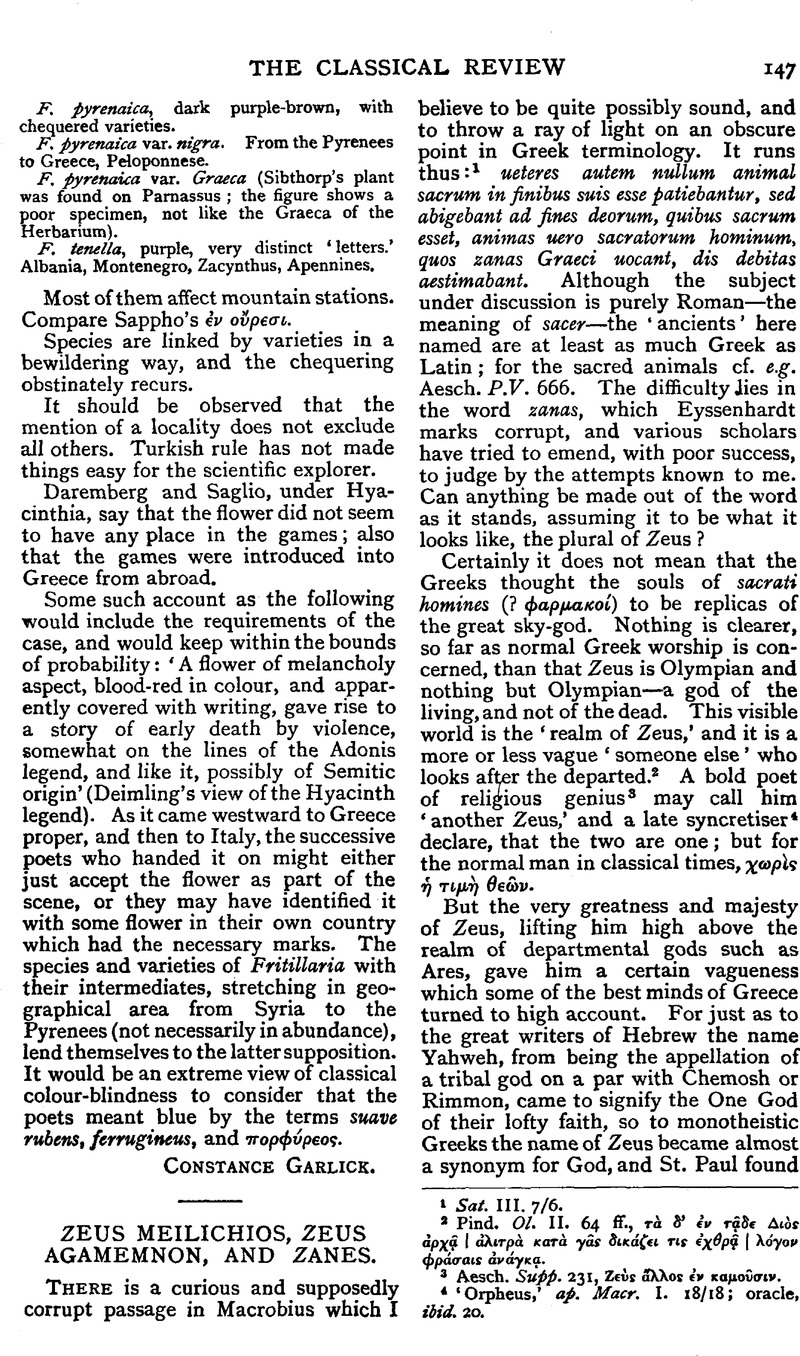Article contents
Zeus Meilichios, Zeus Agamemnon, and Zanes
Published online by Cambridge University Press: 27 October 2009
Abstract

- Type
- Review Article
- Information
- Copyright
- Copyright © The Classical Association 1921
References
page 147 note 1 Sat. III. 7/6.
page 147 note 2 Pind. Ol. II. 64 ff., ![]() .
.
page 147 note 3 Aesch. Supp. 231, ![]() .
.
page 147 note 4 ‘Orpheus,’ ap. Macr. I. 18/18; oracle, ibid. 20.
page 148 note 1 Act. 17, 28; the ![]() are presumably Kleanthes and Aratos.
are presumably Kleanthes and Aratos.
page 148 note 2 E.g. Dio LI. 2O/6, ![]() , i.e. diuom lulium eum uocans; Servius and the interpolator on Aen. XII. 138, cf. V. 45. The latter passage definitely refers to the diui imperatores.
, i.e. diuom lulium eum uocans; Servius and the interpolator on Aen. XII. 138, cf. V. 45. The latter passage definitely refers to the diui imperatores.
page 148 note 3 It should be noted that I am speaking of the meaning, not the derivation, of diuos. Etymologically, it has been pretty conclusively proved, so far as I can judge, that it and deus are the same word. But, apart from the fact that it can be adjectival, I hold that it differs from deus by being vaguer in sense. Wissowa (Rel. u. Kull 2, p. 343) goes, I think, a little too far in saying that the words are ‘schlechthin der Bedeutung nach identisch,’ though, of course, they are often used loosely as synonyms.
page 148 note 4 It might be suggested that such a use of the name is a survival of a very ancient period, before it was definitely attached to a high god. This is possible; but as we know the cult of Zeus to be very old, and know little of the antiquity of the other cults, I prefer the theory in the text.
page 148 note 5 To the references in Farnell, C.G.S., end of chapter on Zeus (Vol. I.), add Conway, Ital. Dial. XXXIX. 7, ant kaila (?) iuueis meelikieis, i.e. usque ad cellam Iouis Milichii. Of the history of this distant branch of the cult nothing seems to be known.
- 2
- Cited by


